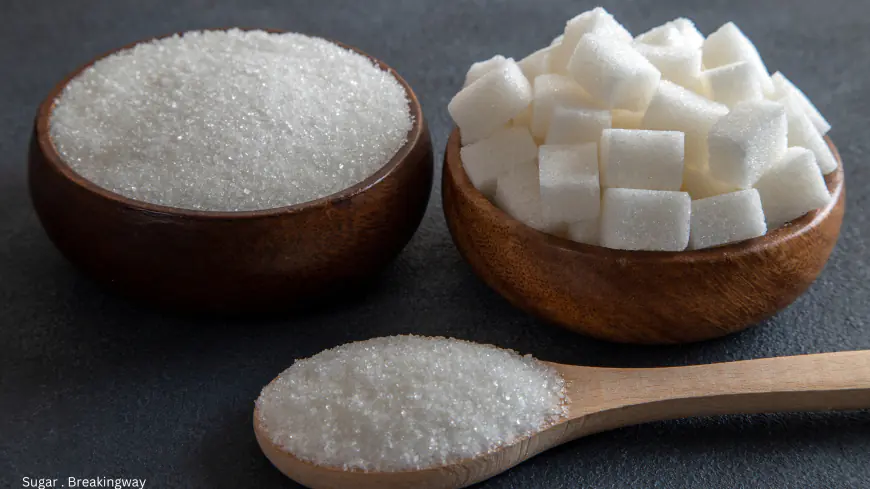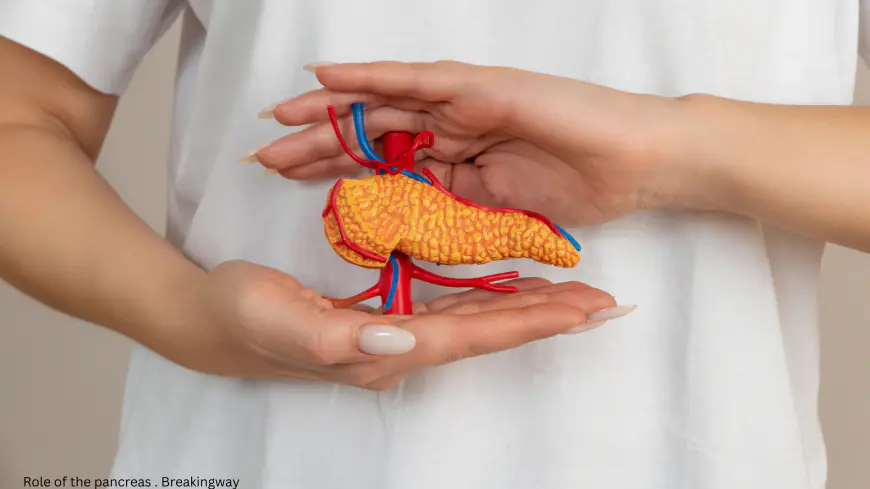The Impact of Sugar on Blood Levels and the Role of the Pancreas: A Simple Guide
how sugar impacts blood levels and the pancreas. Understand the basics with Breaking Way Health's easy guide.

Sugar is a fundamental component of our diet, providing the energy necessary for our bodies to function properly. However, while sugar is important, it’s crucial to manage its levels in our blood to maintain overall health. Fluctuations in blood sugar levels, whether too high or too low, can lead to a range of health issues, some of which can be quite serious. The pancreas, a small but significant organ, plays a key role in regulating these blood sugar levels by producing insulin, the hormone that enables the body to use sugar effectively. In this article, we will explore how sugar affects blood levels and provide a simplified explanation of the pancreas's anatomy and function.

The Impact of Sugar on Blood Levels
When we consume sugar-containing foods, our bodies break them down into glucose, which then enters the bloodstream. Glucose serves as the primary energy source for our cells, powering everything from basic bodily functions to physical activity. However, while glucose is essential, an excess of it in the blood can be harmful.
As blood sugar levels rise, the pancreas releases insulin to help lower these levels by moving glucose into the cells where it’s needed. If we consume more sugar than our body requires for energy, the excess glucose is stored in the liver and muscles as glycogen. Once these storage sites are full, any additional glucose is converted into fat, which can lead to weight gain and increase the risk of obesity.
Sustained high blood sugar levels can cause damage to various parts of the body. For example, it can harm :
- blood vessels, leading to complications such as heart disease, stroke, and kidney disease.
- High blood sugar can also damage nerves, causing numbness or tingling in the extremities, a condition known as neuropathy.
- Additionally, it can weaken the immune system, making the body more susceptible to infections.
Conversely, low blood sugar levels, known as hypoglycemia, can also pose significant risks.
- Hypoglycemia can occur if the body releases too much insulin in response to sugar intake or if a person skips meals or exercises excessively without adequate nutrition.
- Symptoms of low blood sugar include shakiness, sweating, dizziness, confusion, and, in severe cases, loss of consciousness.
Maintaining balanced blood sugar levels is essential for overall health. This can be achieved by following a well-balanced diet that includes a variety of foods, such as whole grains, fruits, vegetables, lean proteins, and healthy fats. Limiting the intake of sugary foods and beverages is also crucial to avoid spikes in blood sugar levels.

Understanding the Pancreas and Its Role
The pancreas is a small, leaf-shaped organ located behind the stomach. Despite its modest size, the pancreas is incredibly important for both digestion and blood sugar regulation. It performs two main functions:
- producing digestive enzymes that help break down food in the intestines
- producing hormones like insulin that regulate blood sugar levels.
The pancreas is composed of two primary types of tissue:
- The exocrine tissue produces digestive enzymes that are released into the small intestine to help break down fats, proteins, and carbohydrates.
- The endocrine tissue, which contains clusters of cells known as islets of Langerhans, produces hormones such as insulin and glucagon.
Insulin is the hormone responsible for lowering blood sugar levels by enabling glucose to enter the body’s cells. Without sufficient insulin, glucose cannot enter the cells and remains in the bloodstream, leading to high blood sugar levels. This condition is known as hyperglycemia and is a hallmark of diabetes.

What is Diabetes?
Diabetes is a chronic condition that occurs when the body either does not produce enough insulin (Type 1 diabetes) or does not use insulin effectively (Type 2 diabetes).
- In Type 1 diabetes, the immune system mistakenly attacks and destroys the cells in the pancreas that produce insulin.
- In Type 2 diabetes, the body becomes resistant to insulin, meaning it does not respond to the hormone as effectively as it should.
Both types of diabetes require careful management to maintain healthy blood sugar levels and prevent complications.
Other hormones produced by the Pancreas :
Glucagon, another hormone produced by the pancreas, works in opposition to insulin. It raises blood sugar levels by signaling the liver to release stored glucose when blood sugar levels are too low. Together, insulin and glucagon work in harmony to keep blood sugar levels within a healthy range.
In conclusion, sugar is a necessary part of our diet, providing essential energy for our bodies. However, it’s crucial to manage blood sugar levels to avoid potential health problems. The pancreas plays a vital role in this process by producing insulin, which helps regulate blood sugar levels and ensures that glucose is used effectively by the body. By understanding how sugar impacts the body and recognizing the role of the pancreas, you can make informed decisions about your diet and lifestyle.
Maintaining a balanced diet with a variety of nutrients, limiting sugary foods, and staying active are all key strategies for keeping blood sugar levels in check. By taking care of your pancreas and managing your sugar intake, you can support your overall health and well-being.
What's Your Reaction?




















































